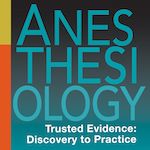Flexible sticker device detects postoperative gastrointestinal leaks

Editor's Note A medical device developed by researchers at Northwestern University and Washington University School of Medicine could enable clinicians to monitor the health of a patient’s organs following surgery. The findings appeared in the journal Science on March 7. Patients who undergo gastrointestinal surgeries—including pancreatic surgery—can develop anastomotic leaks…
Patient engagement technologies improve surgical outcomes, perioperative experience

Editor's Note Patient engagement technologies (PETs) reduced length of stay (LOS), complication rates, and readmission rates among patients in a study published February 16 in the American Journal of Surgery. The retrospective cohort study consisted of more than 400 patients undergoing elective colorectal surgery from 2018 to 2022. Approximately 9…
Negative pressure wound therapy reduces SSI across surgical specialties

Editor's Note Compared with standard wound dressings, single-use negative pressure wound therapy (NPWT) devices can reduce the incidence of surgical site infection (SSI) in at-risk patients with closed surgical incisions across a range of surgical specialties, according to a data review highlighted in the February issue of the American Journal…
Study: Microglia help awaken the brain from anesthesia, protect neurons from aftereffects

Editor's Note A new study finds that the same cells that are involved in preventing damage to the central nervous system – called microglia – help to awaken the brain following anesthesia. The findings appeared January 4 in the journal Nature. Using electron-microscopy-based synaptic reconstruction, the researchers could see the…
Analgesic clinical trials failing to assess movement-evoked postoperative pain

Editor's Note Most surgical studies still do not report movement-evoked postoperative pain despite the recommendations of expert consensus groups, according to findings published November 27 in Anesthesiology. Researchers came to essentially the same conclusion upon re-evaluating the assessment of pain at rest and movement-evoked pain in 2011. In this updated…
New surgical gel could promote wound healing in pelvic organ prolapse surgery

Editor's Note A new synthetic surgical gel developed by a researcher at Radboud University may one day help reduce the need for recurring surgeries for women with pelvic organ prolapse. Advanced Therapeutics published the findings September 6, 2023. According to a recent EurekAlert! report, the researcher received her PhD for…
Engaging ward nurses in optimized assessments improves hospital safety

Editor's Note Evidence-informed and specialty-specific models of nursing assessment and ward redesign can benefit hospital safety, according to a study published January 27 in the International Journal of Nursing Studies. Called the ENCORE (evidence-based nursing core assessment) trial, the large-scale study led by Queensland University of Technology included 29,385 patient…
Complementing Modified Early Warning Score (MEWS) with nursing guide application improves early postoperative outcomes

Editor's Note Following up with a nursing guide in addition to the the modified early warning score (MEWS) helps reduce early postoperative complications, according to the results of a recent clinical trial. Nursing guide application in patients followed up according to MEWS also decreased ISCU admission, decreased MEWS and increased…
Study: Postop emergency appendectomy complications more likely for Black children

Editor's Note In a recent study, black children undergoing emergency appendectomy had a four times greater risk of postoperative complications than white children, independent of socioeconomic status or type of appendicitis. Anaesthesia, the journal of the Association of Anaesthetists, published the findings February 22. Researchers note that this is the…
Study: Early postoperative endoscopy safe, effective for esophageal cancer patients

Editor's Note Using early postoperative endoscopy to detect anastomotic leakage after minimally invasive esophagectomy does not increase postoperative adverse events, according to a study published February 10 in the journal Surgery. Anastomotic leakage is one of the most severe adverse events of minimally invasive esophagectomy for esophageal cancer. Often deadly,…

 Free Daily News
Free Daily News